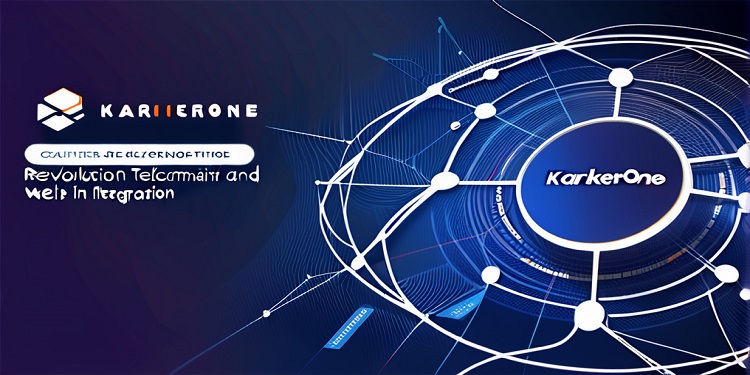KarrierOne, co-founded by Samer Bishay, is pioneering a decentralized telecom infrastructure aimed at bridging the global digital divide. The company leverages blockchain technology and Web3 innovations to enable communities to build their own micro-networks. These networks consist of small cell towers that collectively form a decentralized macro network, providing connectivity for a variety of applications, including smartphones, autonomous vehicles, and artificial intelligence systems.
Bishay highlighted the decentralized approach as a way to democratize telecom infrastructure. The model allows individuals to own network nodes and contribute to broader coverage, creating a shared economy where participants can monetize the data flowing through their antennas. He likened the system to placing antennas on utility poles to provide seamless, beyond-5G coverage while earning revenue from data usage.
Blockchain: Enhancing Security and Simplifying Telecom
KarrierOne integrates blockchain technology to ensure network security and reduce latency, both of which are critical for telecom operations. The platform offers a straightforward user experience, comparable to e-commerce models. Users can order an antenna, set it up, and begin transmitting signals, with the potential to monetize the network much like selling surplus energy from solar panels back to the grid.
This decentralized setup not only enhances coverage but also offers financial incentives for participants. Bishay explained that the return on investment for contributors could be realized within a few years, making it an attractive opportunity for individuals and communities to engage with cutting-edge telecom solutions.
Addressing Financial Inclusion Through Telecom
KarrierOne is tackling financial exclusion by integrating telecom with fintech. The company has introduced the Karrier Number System, which links a user’s phone number to a blockchain wallet. This innovation turns a universally recognized identifier—one’s phone number—into a tool for accessing Web3 services.
Bishay emphasized the significance of this system for the unbanked population. With 5 billion Web2 users globally, 1.7 billion remain without banking access. By enabling these users to send and receive digital assets using their phone numbers, KarrierOne aims to bring financial services to regions with limited traditional banking infrastructure or internet access.
Navigating Regulatory Challenges
Operating at the intersection of telecom, finance, and blockchain, KarrierOne faces complex regulatory landscapes. Bishay acknowledged that regulatory frameworks vary widely across countries, often lacking clear guidelines for emerging technologies. To address this, the company aligns its operations with existing regulations, such as Electronic Money Institution (EMI) licenses in the UK, and incorporates compliance measures like Know Your Customer (KYC) and Anti-Money Laundering (AML) protocols.
Despite these challenges, Bishay views regulatory compliance as a pathway to building a secure and trustworthy network. The transparency inherent in blockchain technology further bolsters the platform’s security, allowing KarrierOne to meet regulatory standards while pursuing its decentralized vision.
Driving Web3 Adoption
User adoption remains a critical challenge for Web3 technologies, and KarrierOne is focused on bridging the gap between Web2 and Web3. The company’s solution simplifies the user experience by eliminating the need for complex blockchain interactions. By linking blockchain wallets to phone numbers, KarrierOne provides an intuitive interface that enables users to engage with digital assets without requiring in-depth knowledge of cryptocurrency or blockchain technology.
Bishay underscored the importance of a seamless user experience in driving adoption. Simplifying the transition to Web3 could encourage more people to participate in the decentralized economy, helping to overcome one of the biggest barriers to blockchain adoption.
Building a Connected and Inclusive Future
KarrierOne’s decentralized telecom infrastructure aims to revolutionize global connectivity and financial inclusion. By merging telecom, blockchain, and fintech, the company envisions a future where billions of unconnected and unbanked individuals can participate in the global digital economy.
As the platform continues to evolve, Bishay remains optimistic about its potential to transform the telecom industry and foster a more inclusive, connected world. KarrierOne is not just building a network—it is laying the foundation for a future where technology empowers communities and bridges longstanding digital and financial divides.
